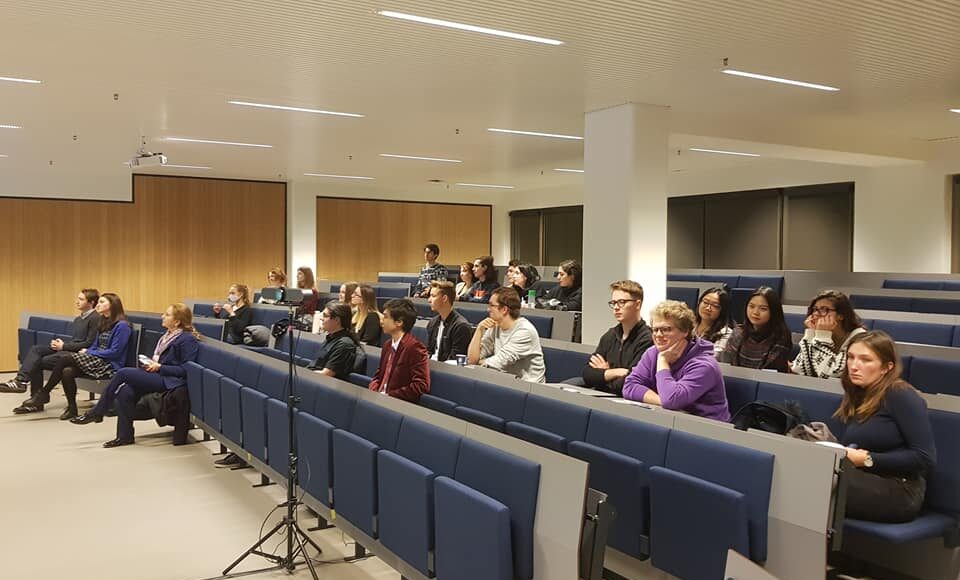By August Zeidman
Dr. Stanislav Vassilevsky, Counsellor at the Embassy of the Republic of Belarus in The Hague, met and held a discussion with students of Leiden University at the Wijnhaven Campus in Den Haag. The event, which was organized by students, aimed to explore some of the more difficult aspects of practical diplomacy, especially in understanding its role between politically counter-aligned nations.
Dr. Vassilevsky was grateful to have the opportunity to meet with students and students were generally appreciative of the opportunity to direct questions they may have had directly to a representative of a country that has attracted significant controversy amongst the European community.
Economic matters were discussed, with Dr. Vassilevsky giving a brief presentation on the various export products of Belarus and showing their connection to European markets at the time in a variety of industries which, in 2021, had much recovered from a dip in engagement from 2020, though now things have greatly reduced once again. Belarus is a significant exporter of, besides petroleum products, potassium products, wooden materials, and dairy.
Additionally, the prescient political matters in Belarus of Autumn 2021 were also discussed. These included the nature and extent of the 2020 anti-government protests, the associated diverting of a flight over Belarusian airspace, and the, at the time, refugee crisis at the Polish-Belarusian border.
Dr. Vassilevsky offered and explained his own insights as well as the perspective of the government that he represents on each of these matters, while engaging with the many questions posed by the diverse audience of students who drew from a wide geographical and cultural background of perspectives.
He offered points and research for consideration and encouraged students to be mindful of and examine the political motivations and biases of media in their own environments and countries, even those that are ostensibly ‘objective’. For example, he asked students to think about similar anti-government protests, which, in some Western nations had been faced with a similar level of government hostility, and questioned the difference in presentation and tone taken when considering movements in one state versus another. Just as Dr. Vassilevsky did with students, some members of the audience reciprocated and attempted to ask questions and bring up points which may help attain a better understanding between opposing perspectives.
Points of practicality were discussed as well, such as the diplomatic situation of Belarus with Europe and the Netherlands in particular; the current and future status of the Union State with Russia; and also just about life as a diplomat in The Hague.
It was a friendly and interesting event where almost everyone in attendance walked away with things to think about and discuss. Perhaps we should all take a bit of Dr. Vassilevsky’s advice and remain skeptical, curious, and questioning.
